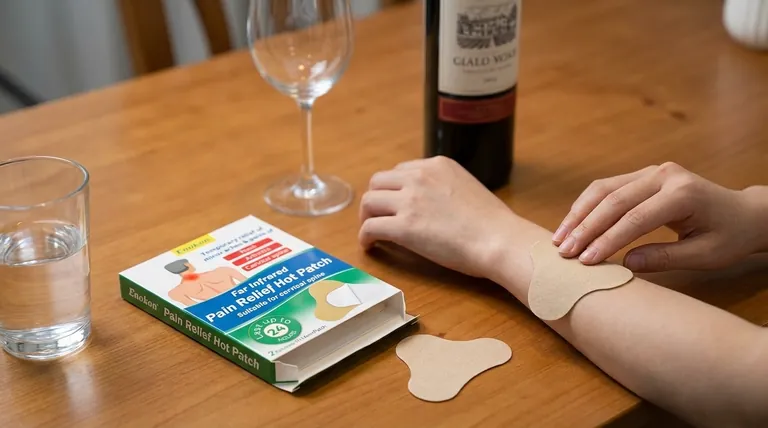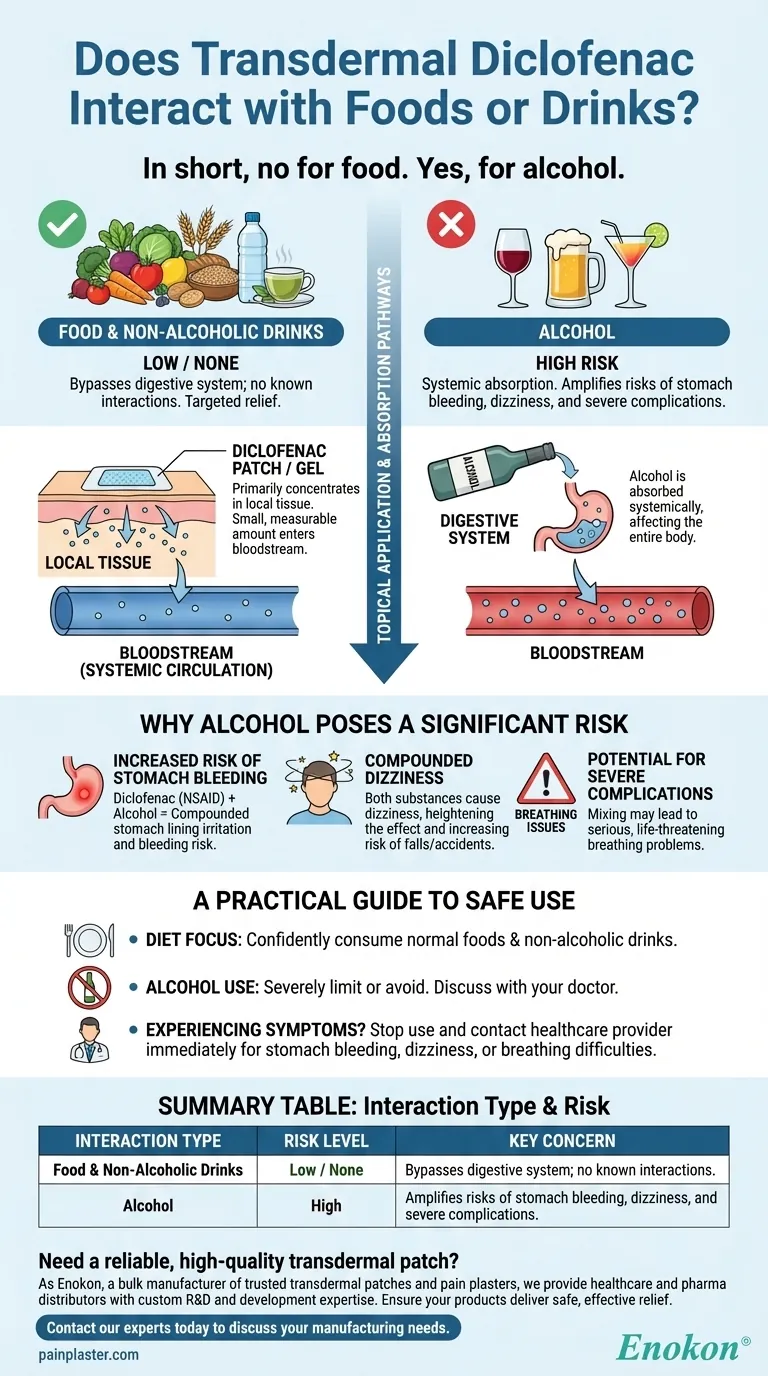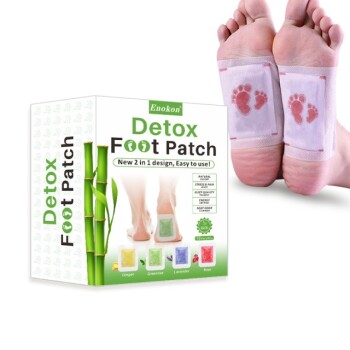In short, no. For all practical purposes, transdermal diclofenac (often sold as a gel or patch) does not have any known interactions with food or non-alcoholic drinks. The primary concern, and the one that requires your full attention, is the potential interaction with alcohol.
While your diet is not a concern, combining transdermal diclofenac with alcohol is strongly discouraged. Even though the medication is applied to the skin, a small amount enters your bloodstream, and mixing it with alcohol can significantly increase the risk of serious side effects.

The Core Answer: Food, Drinks, and Transdermal Diclofenac
Why Food Isn't a Factor
Transdermal diclofenac is applied topically, meaning directly to the skin over the area of pain.
This delivery method is designed to concentrate the medication in the local tissue, minimizing the amount that gets absorbed into your entire system.
Because so little of the drug enters your bloodstream compared to an oral pill, it bypasses the digestive system and avoids the typical interactions with food.
The Critical Exception: Alcohol
Alcohol is different. It is absorbed systemically and affects your entire body, including processes that diclofenac can also influence.
Even the small amount of diclofenac absorbed from a patch or gel can be enough to create a problematic interaction when combined with alcohol.
Why Alcohol Poses a Significant Risk
When you use both substances, you are essentially creating a scenario where their individual risks can be amplified. The primary concerns are related to bleeding, dizziness, and other systemic side effects.
Increased Risk of Stomach Bleeding
Diclofenac is a nonsteroidal anti-inflammatory drug (NSAID). All NSAIDs, even topical ones, carry some risk of causing stomach irritation or bleeding.
Alcohol is also a known irritant to the stomach lining and can increase this risk. Using them together compounds the potential for gastrointestinal side effects.
Compounded Dizziness
Some individuals may experience dizziness as a side effect of diclofenac. Alcohol is well-known to cause dizziness and impair coordination.
Combining the two can heighten this effect, increasing your risk of falls and accidents.
Potential for Severe Complications
In some cases, the combination of NSAIDs and alcohol can lead to more severe issues. Certain reports warn that mixing them may cause serious, and potentially life-threatening, breathing problems.
Understanding the Trade-offs: Topical vs. Systemic Effects
The Benefit of Topical Application
The main advantage of a gel or patch is targeted relief with fewer systemic side effects than oral medication. This is why food interactions are not a concern.
The Reality of Systemic Absorption
However, it is a mistake to assume that "topical" means zero absorption into the bloodstream. A small but measurable amount of the drug will circulate through your body.
This small amount is precisely why you must consider its interaction with other systemic substances like alcohol or other medications you may be taking.
The Importance of Full Disclosure
Always inform your healthcare provider about all medications, supplements, and your level of alcohol consumption. Only they can provide personalized advice based on your complete health profile.
A Practical Guide to Safe Use
Your approach should be guided by a clear understanding of the specific risks involved.
- If your primary focus is diet: You can be confident that normal foods and non-alcoholic beverages will not interact with your transdermal diclofenac treatment.
- If you consume alcohol: You should severely limit or avoid alcohol while using this medication. Discuss your specific situation with your doctor to understand the risks.
- If you experience any unusual symptoms: Stop using the product and contact your healthcare provider immediately if you notice signs of stomach bleeding (like black or tarry stools), excessive dizziness, or any difficulty breathing.
Ultimately, using this medication safely means understanding that what you put on your body can interact with what you put in it.
Summary Table:
| Interaction Type | Risk Level | Key Concern |
|---|---|---|
| Food & Non-Alcoholic Drinks | Low / None | Bypasses digestive system; no known interactions. |
| Alcohol | High | Amplifies risks of stomach bleeding, dizziness, and severe complications. |
Need a reliable, high-quality transdermal patch?
As Enokon, a bulk manufacturer of trusted transdermal patches and pain plasters, we provide healthcare and pharma distributors with custom R&D and development expertise. Ensure your products deliver safe, effective relief.
Contact our experts today to discuss your manufacturing needs.
Visual Guide

Related Products
- Far Infrared Deep Heat Relief Patches Medicated Pain Relief Patches
- Far Infrared Heat Pain Relief Patches Transdermal Patches
- Heating Pain Relief Patches for Menstrual Cramps
- Asthma Cough and Pain Relief Patch for Adults and Kids
- Mugwort Wormwood Pain Relief Patch for Neck Pain
People Also Ask
- How quickly does the Deep Heat Pain Relief Back Patch activate and how long does it provide warmth? Get 16-Hour Relief
- How do pain relief patches provide targeted relief? Discover the Science Behind Effective Pain Management
- How often should pain relief patches be used? Get the Right Schedule for Targeted Relief
- How do pain relief patches work? A Guide to Targeted, Long-Lasting Pain Relief
- How effective are pain relief patches for muscle pain? Target Localized Pain with Transdermal Delivery

















